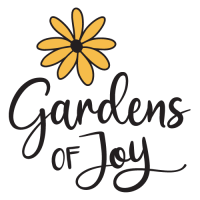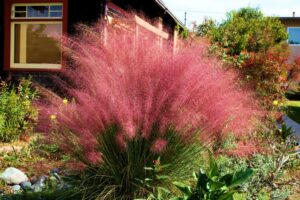Starting a Wholesale Compost Nursery: What You Need to Know
Starting a wholesale compost nursery is a great way to make a living from something you love. Growing plants, trees, and shrubs give you the satisfaction of knowing that you are helping the environment and making a difference in the world. But before starting a wholesale compost nursery, there are a few things you need to know. You’ll need to consider the cost involved with starting a compost nursery, the legal requirements, the materials and equipment you’ll need, and how to market your business. Knowing these basics will help you get your business off the ground and ensure its success. With a little bit of planning and hard work, you can achieve great things in the world of wholesale compost nurseries.
Cost of Starting a Wholesale Compost Nursery
The cost of starting a wholesale compost nursery will vary depending on the types of materials and equipment you decide to use. You’ll need to purchase land, compost bins, and composting equipment like turners, mixers, and aerators. You’ll also have to buy the plants and trees you’ll sell, and you might need to hire employees. All of these expenses add up quickly, so you’ll want to be prepared financially before you start your business. Before you get started, you should get an idea of how much these various costs will add up to. You can do this by creating a business plan and taking stock of your assets and liabilities. A business plan will help you map out your financial goals and identify potential risks along the way. It will also help you get financing from banks or other investors if needed. Assets are things like money you have saved, equity in your home, or other financial resources. Liabilities are debts like your mortgage or credit card payments. Knowing how much money you have available and what you owe will help you plan for expenses like land purchases.
Legal Requirements for Starting a Wholesale Compost Nursery
When starting a compost nursery, be sure to check your local government regulations to make sure your business is legal. Some localities require you to have a business license or other permit if you plan to sell plants or other products. You may also have to follow certain zoning restrictions that limit the type of business you can start, or where you can do business. Before opening your business, be sure to check local regulations to stay on the right side of the law. In addition to local regulations, you’ll also need to meet federal standards when starting a wholesale compost nursery. For example, you’ll need to follow the conditions of any plant protection orders that may apply to the plants you sell. If you plan to import or export plants, you may also have additional legal requirements to meet.
Materials and Equipment Needed for a Wholesale Compost Nursery
There are several materials and equipment you’ll need as part of starting a wholesale compost nursery. First, you’ll need land where you can grow your plants. You can either lease or purchase land, or you may be able to find a property owner who is willing to partner with you for a share of the profits. The amount of land you need will depend on the types of plants you plan to grow and the size of your business. Next, you’ll need a compost bin to grow your plants in. You can either purchase a pre-made compost bin or build your own. If you choose to build your own, you’ll need to consider the size and materials of your compost bin as well as the composting technique you’ll use. The size of your compost bin will depend on the type of plants you plan to grow and the number of plants you want to grow. Some plants like trees need an especially large amount of space, so they are usually grown in larger compost bins.
How to Market Your Wholesale Compost Nursery
When starting a wholesale compost nursery, you’ll also want to think about how to market your business. You may want to start with a website where you can list your plants for sale and give customers information about your business. You’ll want to be sure that your website is secure to protect your customers’ information. You can also market your business through social media sites like Facebook and Instagram. Building a following on these sites can help you reach a wider customer base and increase sales. You can also market your business in person at local events. For example, you can participate in community gardening events or craft fairs. These events will give you an opportunity to meet new customers and promote your business. You can also approach nurseries in your area to see if they would be interested in buying your plants. This can be a great way to get your business off the ground. Wholesale compost nursery
Tips for Running a Successful Wholesale Compost Nursery
There are also some tips you can follow to run a successful wholesale compost nursery. First, make sure to choose plants that will thrive in your growing area. If you don’t know which plants will do well in your area, you can use a plant-selection guide to help you pick out suitable plants. Second, implement good composting practices to grow healthy plants. You can use composting techniques like vermicomposting or other types of composting like in-vessel composting. Next, be sure to keep your composting facility clean and follow good sanitization practices. Poor sanitization practices can lead to pests and diseases in your compost that can spread to your plants. Finally, make sure to follow all legal requirements for growing plants in your area. This includes adhering to any plant protection orders that may apply to the plants you grow.
Alternative Composting Techniques
While most wholesale compost nurseries use aerobic composting techniques, you can also use anaerobic composting techniques. Anaerobic composting occurs in an environment that is low in oxygen and contains little to no water. You can accomplish this by turning your compost pile less frequently and keeping it covered. Composting with worms is another alternative composting technique. Vermicomposting is a type of composting that uses worms as composting agents. It is a great way to compost indoors and can be used to grow plants or to compost kitchen scraps.
Composting Resources
Finally, you can learn more about composting by visiting online resources. For example, you can visit the Compost Council website to learn more about composting techniques. You can also visit other websites and read blogs written by composting experts. If you are looking to start a wholesale compost nursery, it’s important to understand the costs involved with starting a compost nursery, the legal requirements, the materials and equipment needed, and how to market your business. Knowing these basics will help you get your business off the ground and ensure its success. With a little bit of planning and hard work, you can achieve great things in the world of wholesale compost nurseries.
This article is provided by https://www.provendernurseries.co.uk/sundries/bark-compost-soils





